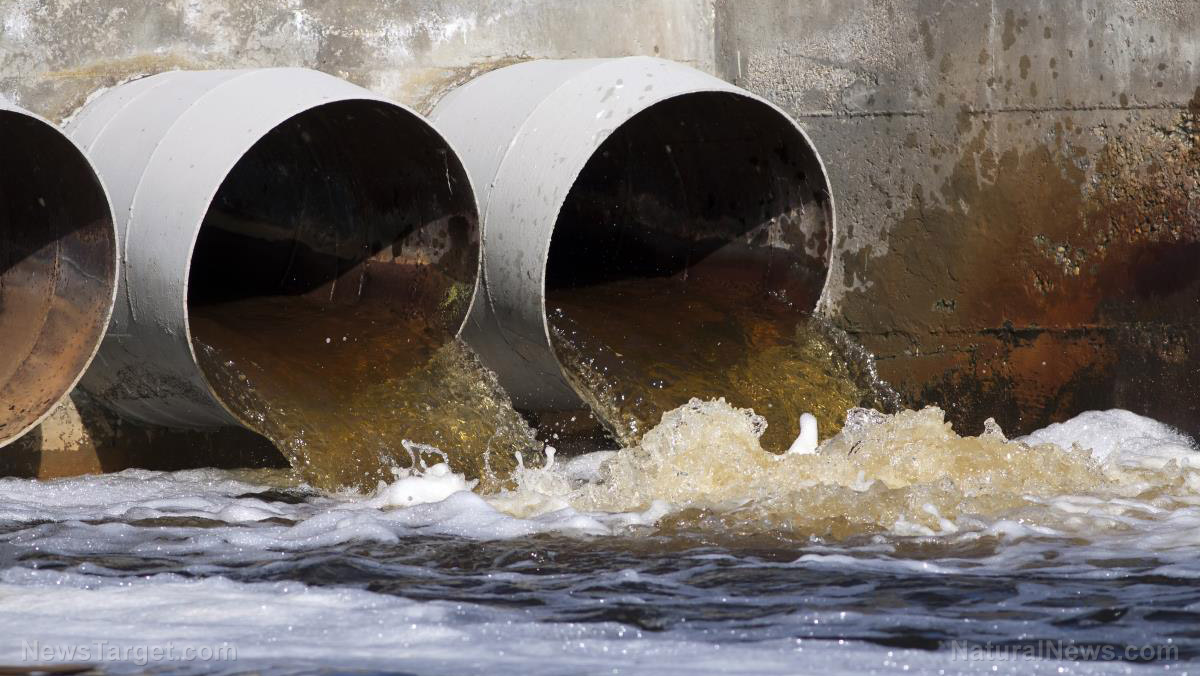 Parler
Parler Gab
Gab
- Rural landowners in states like Oklahoma and Alabama are protesting the use of biosolids – treated sewage sludge – as fertilizer, citing foul odors, health risks and contamination of soil and water.
- The sludge contains PFAS, toxic "forever chemicals" linked to cancer and immune system disruption, which persist in the environment and have been found in all 50 states, according to EPA.
- Communities like Luther, Oklahoma, have successfully lobbied for local bans, but residents report city and state officials as dismissive, despite growing evidence of harm.
- Cities such as Oklahoma City and Tulsa continue to spread biosolids on tens of thousands of acres, promoting them as environmentally beneficial, even as no PFAS contamination data for the sludge is publicly provided.
- Amid renewed scrutiny, EPA Administrator Lee Zeldin announced a pause on PFAS regulatory updates and delayed compliance deadlines for drinking water standards, intensifying criticism from concerned communities.
Cities still spread biosludge on farmlands despite PFAS cancer concerns
Biosolids have long been promoted as a cost-effective, sustainable fertilizer. But the practice became increasingly controversial in the early 2020s when scientists confirmed that per- and polyfluoroalkyl substances (PFAS) – toxic, man-made chemicals linked to cancer and immune system dysfunction – were present in the sludge. The chemicals enter the environment from industrial sites, manufacturing plants and military bases. From there, they flow into wastewater treatment plants and settle into the solid sludge at the bottom of the tanks – sludge that is then treated and spread on farmland as biosolids. The Environmental Protection Agency (EPA) acknowledged that PFAS have been found in all 50 states and that most Americans have already been exposed due to the chemicals' widespread use since the 1940s. Major PFAS manufacturer 3M agreed to begin phasing out the chemicals in 2000. However, their lasting impact is only beginning to be understood. A 2016 study by the U.S. Department of Health and Human Services (HHS) found that PFAS may disrupt the immune system, with additional research showing possible links to cancer. A 2020 meeting of the EPA's Board of Scientific Counselors revealed "clear evidence" that perfluorooctanoic acid (PFOA) – a specific type of PFAS – caused cancer in lab animals. Despite this, biosolids continue to be applied to farmland in dozens of states. Only the state of Maine has banned the use of biosolids on farmland, citing public health concerns. Every other state still allows the practice, using EPA guidelines as a regulatory baseline. These guidelines, however, are now at the center of renewed debate after EPA Administrator Lee Zeldin announced in May that the agency would pause updates to its regulatory approach to PFAS and extend compliance deadlines for new drinking water standards by two years from 2029 to 2031. Head over to Pollution.news for similar stories. Watch this video about how pollution spreads and reaches America's beaches. This video is from the Surviving Hard Times channel on Brighteon.com.More related stories:
SEWAGE from Mexico forces closure of San Diego beaches.
UKHSA: Vaccine-derived poliovirus found in London sewage samples.
LA treatment plant discharges 17 MILLION gallons of sewage.
Sources include: ZeroHedge.com TheEpochTimes.com Brighteon.comReady-to-eat chicken fettuccine alfredo RECALLED over Listeria contamination
By Olivia Cook // Share
By Finn Heartley // Share
AI training’s “fair use” wins over books, but court leaves piracy bill on tech’s table
By Willow Tohi // Share
Governments continue to obscure COVID-19 vaccine data amid rising concerns over excess deaths
By patricklewis // Share
Tech giant Microsoft backs EXTINCTION with its support of carbon capture programs
By ramontomeydw // Share
Germany to resume arms exports to Israel despite repeated ceasefire violations
By isabelle // Share










